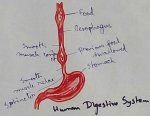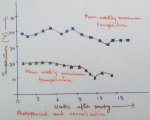Gandhi Jayanti
Mohandas Karamchand Gandhi, about whom Albert Einstein once said that ‘Generations to come will scarcely believe that such a one as this ever in flesh and blood walked upon this earth’ was a man, far ahead of his times. His contribution to the nation, that is India, is acknowledged and celebrated every year on his birthday - 2nd October, as Gandhi Jayanti, a national holiday. He was a leader par excellence and for his humanitarian outlook was revered beyond borders and still continue to be cited and narrated wherever the concept of non-violence and social justice needs to be invoked.
Gandhi was a visionary. He despised the British rule but he admired the British concept for having given him unrestricted access to new ways of life and thought. He returned from South Africa in 1914, thoroughly disillusioned with the practice of Apartheid in existence at that time and pledged that India shall gradually liberate herself from the shackles of the British Empire. The road ahead was not easy. At great peril to his own liberty and life, time and again he pushed himself to the front of leading a nation of poor, illiterate and unorganized group of people in defiance against the formidable British rule. His power to mobilize human force morally and ethically was something to reckon with.
It is to his credit that for the first time, the nation came under one banner and one ideology to fight against the common enemy. It is again this man’s indomitable prowess that for the first time in history a revolution of this magnitude taking into account millions of people was made possible without the singular use of violence. He ensure that hence onwards, whenever and wherever a mass of people shall rise up against brutal force in a non-violent and peaceful manner, even at the face of ceaseless persecution and undeniable provocation, his name shall be remembered and his ideology invoked.
His philosophy of “Sataygraha”/ moral domination brought the whole nation in a unified cohesion and he also helmed the “Swadeshi” movement in India which for the first time create an awakening in the nation that hence only goods produced indigenously in India shall be bought and used by the Indians, thereby halting the progress of British commerce and giving Indian business from salt to textile, the much needed leverage.
His birthon 2nd October, 1969, is celebrated every year in India as Gandhi Jayanti and has been officially designated as a Gazetted holiday . Prayers and peaceful procession and commemorative services held at Raj Ghat, on the banks of river Yamuna where his body was cremated with State honors in January 1948, to pay tribute to this man. The philosophy and the concept of non-violence is invoked and remembered through his books and films made on him. Musical tribute is paid to him using devotional hymns of which ‘Raghupati Raghava Raja Ram’ used tobe his personal favorite. It is also celebrated as a ‘No Meat and No- Alcohol day since he shunned meat and alcohol all his life as a part of de-toxified life style that he advocated. Government offices, school, colleges and banks remain shut on this day.
Not only India , but the United Nations also commemorates this day as the International Day of Non-Violence to coincide with his birthday.
From Gandhi Jayanti to HOME PAGE
Recent Articles
-
Eleventh Grade | Eleventh Grade Science | Eleventh Grade Math
Jun 27, 25 12:26 AM
Eleventh grade biology has been designed in accordance with the recommended topics. We will cover all the topics in biology very exciting and interesting way. -
Explain Digestion of Food | Salivary Glands | Oesophagus | Stomach
Jun 27, 25 12:20 AM
Before the digestion is start by the different enzymes secreted from the different digestive glands food must be turned and chut or mixed with saliva inside the mouth. -
Explain Human Digestive System | Mouth | Tongue | Pharynx | Teeth
Jun 21, 25 01:15 PM
Digestive system is a system of alimentary canal and digestive glands. Alimentary canal- alimentary canal is a tube of variable diameter having muscular wall and glandular epithelial tissues which sta… -
Vernalisation in Plants | Definition | Mechanism | Devernalization |
Jun 18, 25 01:34 PM
Definition of vernalisation- The change of flowering habit due to the low temperature treatment is known as vernalisation. This is a physiological process which was denoted by Clipart in 1857 invite b… -
The Food We Eat | Food we Get from Plants and Animals | Carbohydrates
Jun 15, 25 03:20 PM
What are the food that we should eat? Find out the names of ten food items in the word maze. Write the names in the correct column of the table given below. Food we get from plants Food we get from an…




New! Comments
Have your say about what you just read! Leave me a comment in the box below.